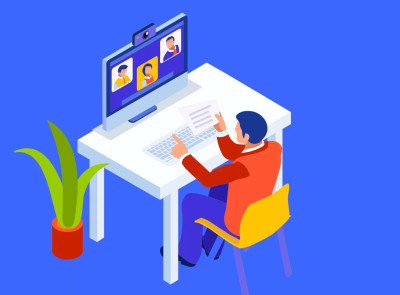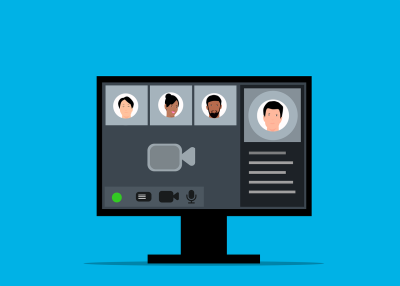Course description
This topic presents an up-to-date selection of collaborative educational online instruments that can facilitate the interactions between the participants of online classes and that can be used as part of the pedagogical methodology. These tools are developed under the Web 2.0 paradigm as the platform that represents the second version of the Internet and consists of all online tools, applications, and approaches.
The tools are structured into five general categories according to their role (communication tools, collaboration tools, content creation tools, educational and research tools, productivity tools), but of course, some of them can be included in more than one category at a time, as they fulfil several roles. For each tool, resources are provided as in-text hyperlinks to give you more insight into how it can be used.
The emphasis will be on communication tools: (1) Video Conferencing and Virtual Classrooms (such as Zoom, Microsoft Teams, Google Meet, Cisco Webex, BigBlueButton etc); (2) Online Discussion, Instant Messaging and Chat Tools (such as Google Chat, Slack, Remind, Telegram, Discord); (3) Social Media and Networking Tools (Facebook, Instagram, Twitter); (4) Web-based Survey and Polling Tools (Google Forms, Mentimeter, Poll Everywhere, etc.); (5) Blogging and Reflective Journals (WordPress, Blogger, Edublogs); (6) Online Presentation and Slideshow Tools (Google Slides, Microsoft PowerPoint Online, Prezi, SlideShare).
Also, collaboration tools are presented (virtual collaboration platforms, online whiteboarding and brainstorming tools, social bookmarking and content curation tools, wiki and knowledge management tools), content creation tools (graphic design tools, video creation tools, podcasting tools, interactive presentations, digital storytelling, mind mapping and diagramming tools), educational and research tools and productivity tools (project management and task collaboration tools, productivity suites, note-taking and organization tools, storage tools, time management and focus tools).




















